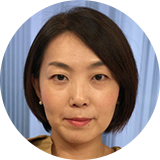A cry for help
"My father is violent to me. He wakes me up at night. When I'm awake, he kicks and hits me. Teacher, will you do something?"
Mia was literally pleading for help before her death. In a school questionnaire about bullying conducted in November 2017, the girl said she was being abused by her father. Students were told their answers would be kept confidential.

Staff at a child consultation center then took her into temporary care. About a month later, Mia was released on condition that her mother would play a central role in raising her while Mia stayed with a relative.
Mia's father went to the school demanding to see her questionnaire. The school turned him away, but the city's board of education gave in and handed over a copy.
A lawyer specializing in child abuse issues has questioned the school's decision. "Showing him the questionnaire may have made the violence worse," says Keiji Goto. Education Ministry official Hideaki Matsuki says what the board of education did is inexcusable. He says there needs to be an investigation into the impact of sharing the questionnaire.
The deputy head of the Noda City Education Board, Masahiko Yabe, says he was intimidated by the father. "I felt compelled to give him a copy, as if mentally forced into a corner," he says.
"We could have protected the girl's life but failed to do so and committed a fatal mistake because of my decision. I am deeply sorry."

Sent back home
Then, on February 26th last year, Mia's father handed a document of his own to the child consultation center. He said it exonerated him and demanded the return of his daughter.
The letter purportedly came from Mia. It presented a very different version of events from the questionnaire she wrote three months previously.
"I lied when I said my father hit me. I caused trouble to my father, mother, sister and relatives. I'm sorry. I wanted to live with my family again. I want to see my father soon. I don't want to see people from the child consultation center. Please don't come to see me again."
The head of the Kashiwa City consultation center says they were aware of the possibility Mia had been forced to write it.
"We thought it highly likely that her father had made her write the letter," says Hitoshi Nihei, the director of Kashiwa child consultation center. "But we confirmed with her that she wanted to go home, so we didn't put her in temporary protective custody."
Officials eventually decided to allow Mia to live with her parents without checking if she had written the letter of her own will.
One of them asked Mia whether she really meant what she wrote.
Nihei says the girl told the official she went to see her mother when her father was at work. On one of those occasions she copied out a message her father had given her mother, along with instructions for Mia to do so
The official asked if that represented her true feelings. Nihei says she replied that she wanted to see her father and mother soon, and that she meant it when she said she wanted to live with them again.
Mia was back at home with her parents by March of last year. Officials didn't even visit their home once after her return. They didn't interview her parents either.

Opportunities missed
Mia had been absent from school since January 7th this year, when classes restarted after the winter holidays. Her father told school officials his daughter was visiting her mother's hometown in Okinawa. He said she wanted to be close to a relative who was ill and told them she would be absent until the end of the month.
Even though it was aware of the allegations of abuse, the school did not report Mia's absence to child welfare authorities until three days before she died.
Cooperation the key
As the background to the case becomes clearer, experts are continuing to point fingers at the authorities.
Lawyer Keiji Goto says, "I can't believe officials were shown a document by a parent, didn't dispute any of it, and just sent the child back home."
He says it goes without saying that officials must never give in to parents' demands if that exposes children to danger.
He is also calling on child consultation centers to work with police. In some municipalities, including Takamatsu City in Kagawa Prefecture, that's already happening. Child consultation center staff and police officers held a joint drill last year, simulating a visit to a family suspected of abuse.
Goto says the notion that staff members feel scared of parents who are abusing their children must be addressed first.
He says that's why a system based on cooperation between child welfare authorities and the police is necessary: "People must recognize that child abuse is a very serious matter that cannot be dealt with by one organization alone."

